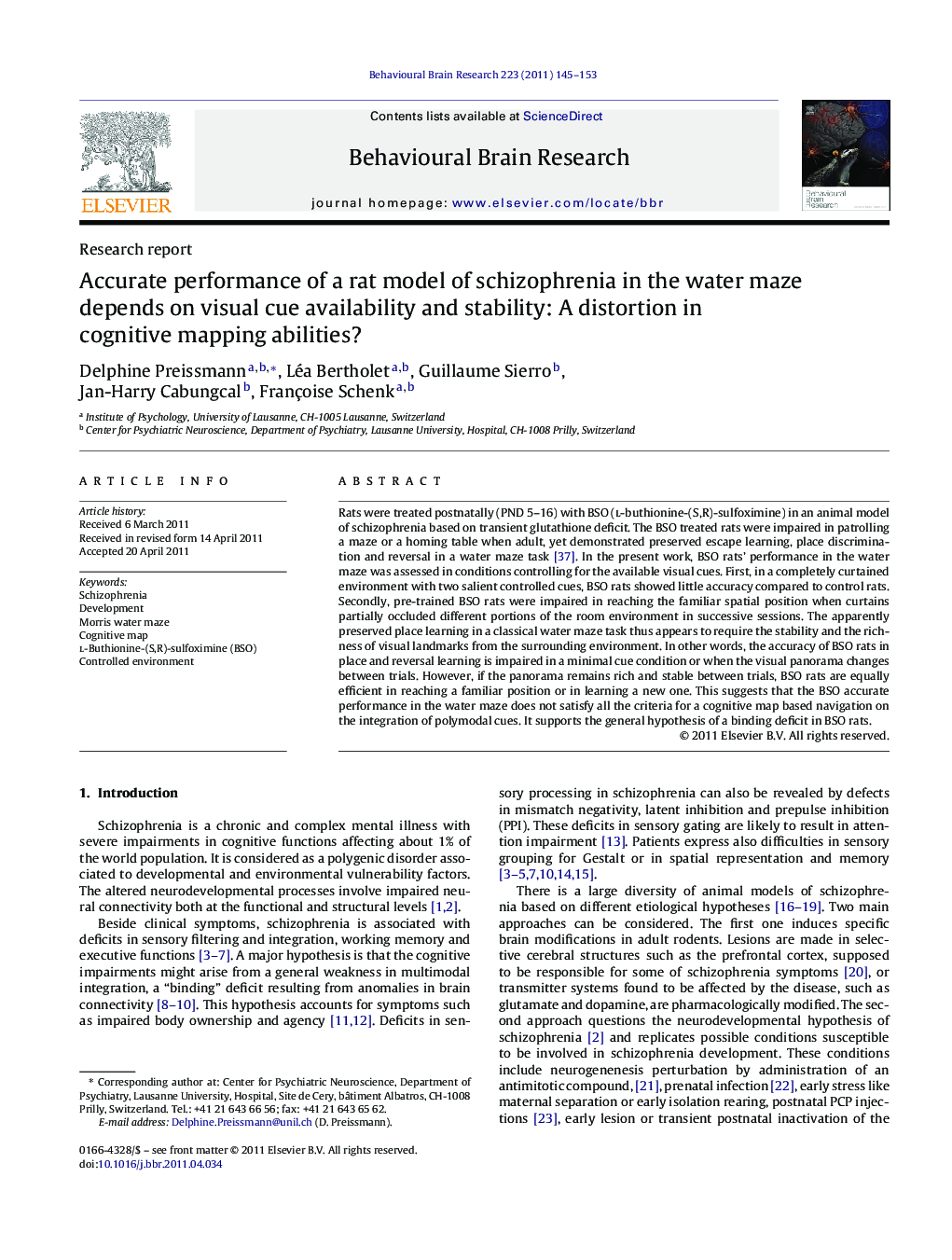| Article ID | Journal | Published Year | Pages | File Type |
|---|---|---|---|---|
| 4313441 | Behavioural Brain Research | 2011 | 9 Pages |
Rats were treated postnatally (PND 5–16) with BSO (l-buthionine-(S,R)-sulfoximine) in an animal model of schizophrenia based on transient glutathione deficit. The BSO treated rats were impaired in patrolling a maze or a homing table when adult, yet demonstrated preserved escape learning, place discrimination and reversal in a water maze task [37]. In the present work, BSO rats’ performance in the water maze was assessed in conditions controlling for the available visual cues. First, in a completely curtained environment with two salient controlled cues, BSO rats showed little accuracy compared to control rats. Secondly, pre-trained BSO rats were impaired in reaching the familiar spatial position when curtains partially occluded different portions of the room environment in successive sessions. The apparently preserved place learning in a classical water maze task thus appears to require the stability and the richness of visual landmarks from the surrounding environment. In other words, the accuracy of BSO rats in place and reversal learning is impaired in a minimal cue condition or when the visual panorama changes between trials. However, if the panorama remains rich and stable between trials, BSO rats are equally efficient in reaching a familiar position or in learning a new one. This suggests that the BSO accurate performance in the water maze does not satisfy all the criteria for a cognitive map based navigation on the integration of polymodal cues. It supports the general hypothesis of a binding deficit in BSO rats.
► Glutathione (GSH) deficit, a risk factor for schizophrenia, can be induced in rats. ► Transitory postnatal GSH reduction impairs cognitive mapping abilities in adults. ► The impairment is selectively observed in visually poor environments. ► Compensatory strategies require continuous, specific and complex visual flow. ► Our results correspond to the general binding deficit observed in patients.
